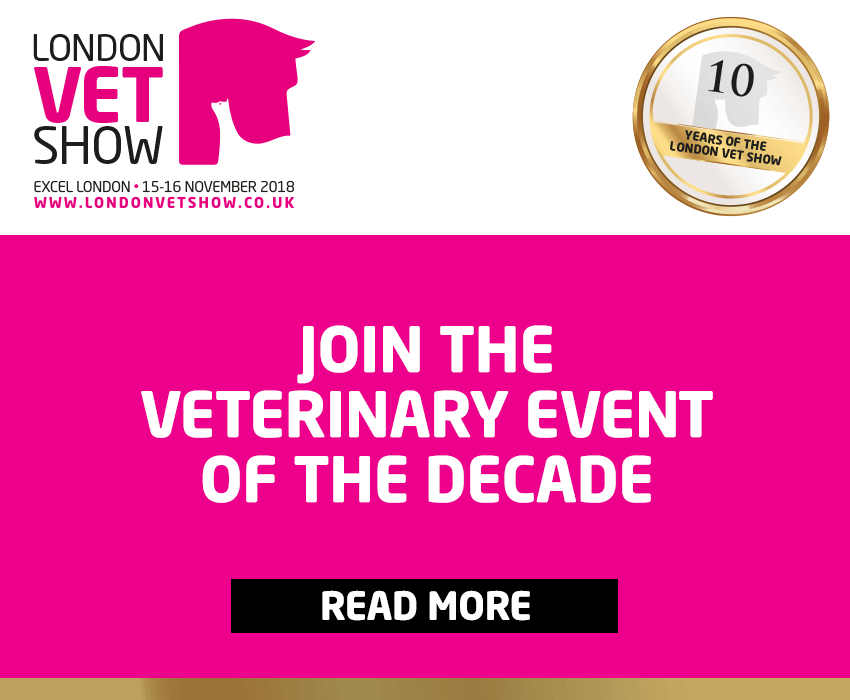Flexibility: the key to sustainability
We are in the midst of a veterinary medicine recruitment and retention crisis. Statistics from the RCVS Workforce Summit 2021 make for a worrying read.
Despite an increase in the number of vet schools and qualifying vets, the net number of practising vets entering the profession is reducing at an alarming rate.
43.7% of vets say that they want to leave the profession (Hagen et al, 2020), 52.3% of veterinary clinics report being understaffed (SPVS, 2017) and 74% worry about burnout (BVA, 2020).
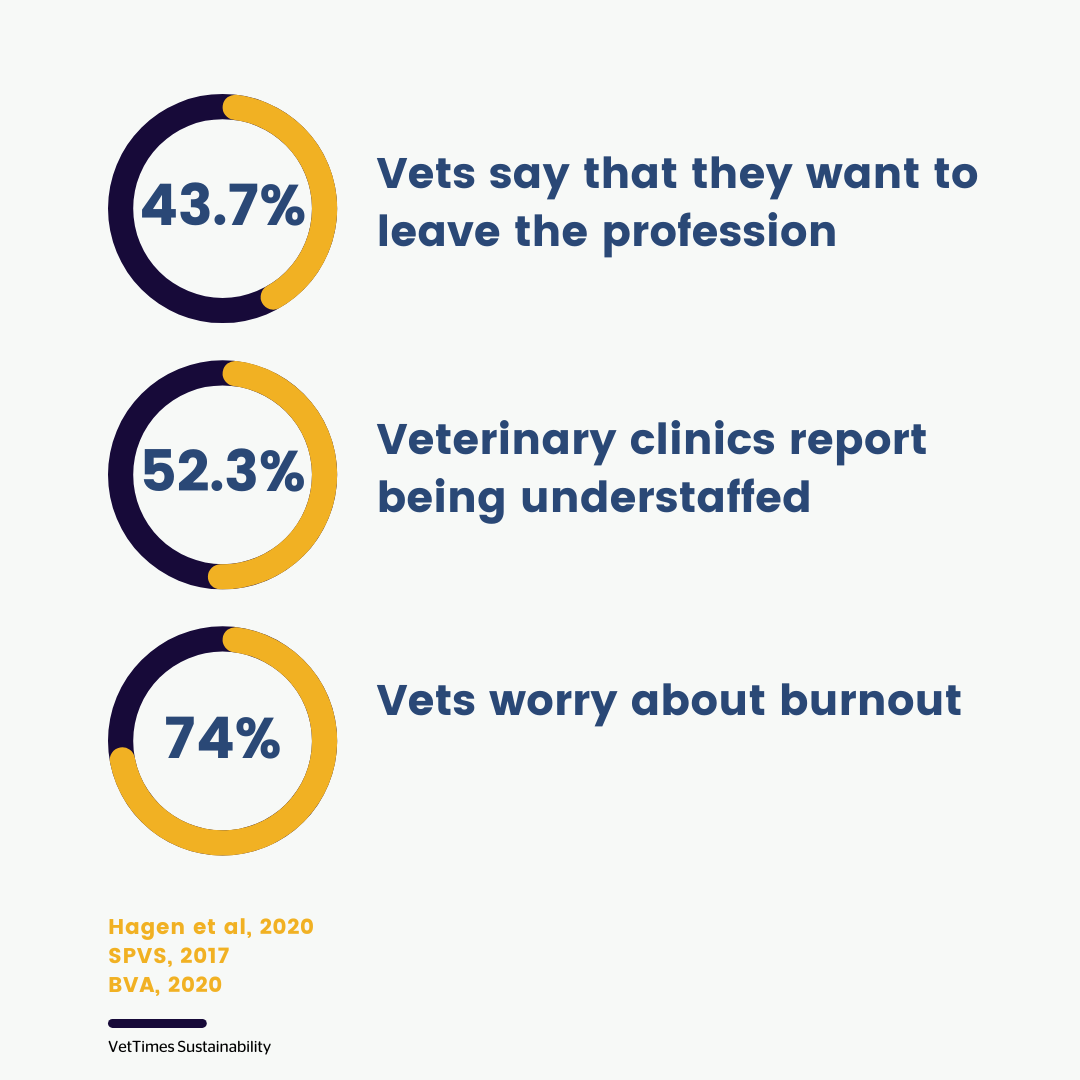

So, what factors have led to these ‘leaky pipes’? The problem is multifactorial:
- Increased demand due to pandemic pressure.
- A surge in pet ownership squeezing the veterinary workforce further.
- A reduction in the number of EU-registered practising vets due to Brexit.
- A gradual rise in the number of practising vets leaving the profession.
Solving the problem
While we can continue to blame COVID and Brexit for all ills, how do we make the profession more sustainable for those working within it? Mending the profession’s faulty plumbing is about promoting the well-being of those working within it. But contrary to popular belief, just like we can’t stop the climate crisis by planting more trees, we cannot fix this with book clubs and yoga.
The aim is to keep 80% of our vets happy, 80% of the time. Sounds easy, right?
In the RCVS Survey of the Veterinary Profession, the most common reasons given by those stating they intend to leave the profession were poor work-life balance (60%), not feeling rewarded or valued (55%), chronic stress (49%), long or unsociable hours (48%), and pay (44%).
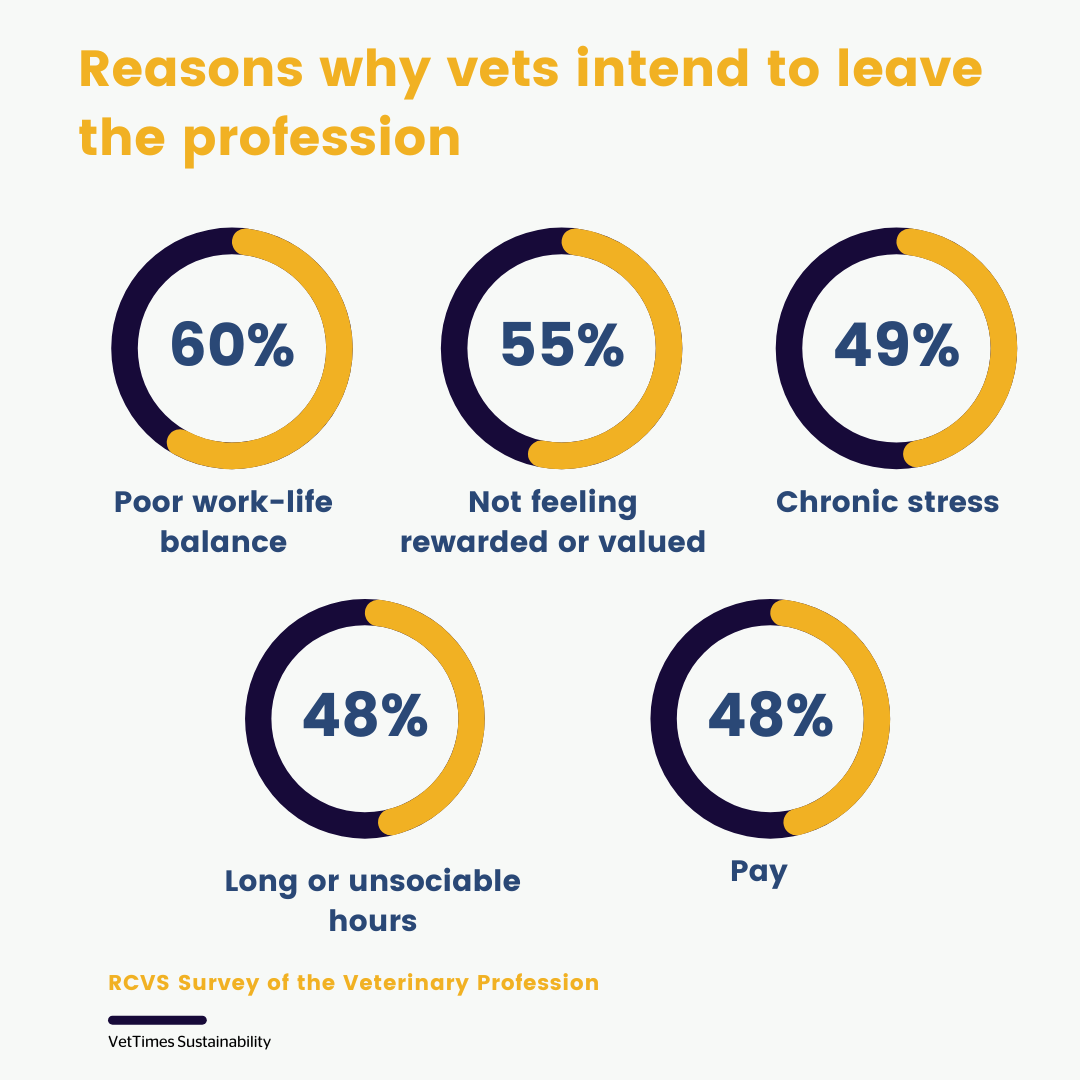

So, let’s explore these individually…
Work-life balance
At Flexee, we define work-life balance (WLB) as a state of well-being that can be maintained through effective management of multiple work and non-work responsibilities, with minimal negative impact. Improved WLB positively impacts physical, mental and social well-being. It also improves job satisfaction and career success, due to reduced burnout and absenteeism.
But WLB doesn’t just benefit the individual. It increases organisational commitment, reduces staff turnover and improves performance. Win-win!
Flexible working, either perceived flexibility or formal flexibility has been shown to improve work-life balance. Simply allowing employees to choose their start or finish time, helps them feel as though they have a better work-life balance, even when they’re working the same hours.
Long or unsocial hours
Long hours do not equate to increased productivity. They set an unsustainable, toxic “stay late” culture. The number one thing veterinary professionals want to change about their job is working hours (Hagen et al, 2020), which falls under the umbrella of flexible working.
In a BVA survey, 44% of vets stated that they would like to work more flexibly, 56% of those who don’t currently work flexibly would like to start and 36% of those who are currently working flexibly would like to work more flexibly. (BVA, 2021).
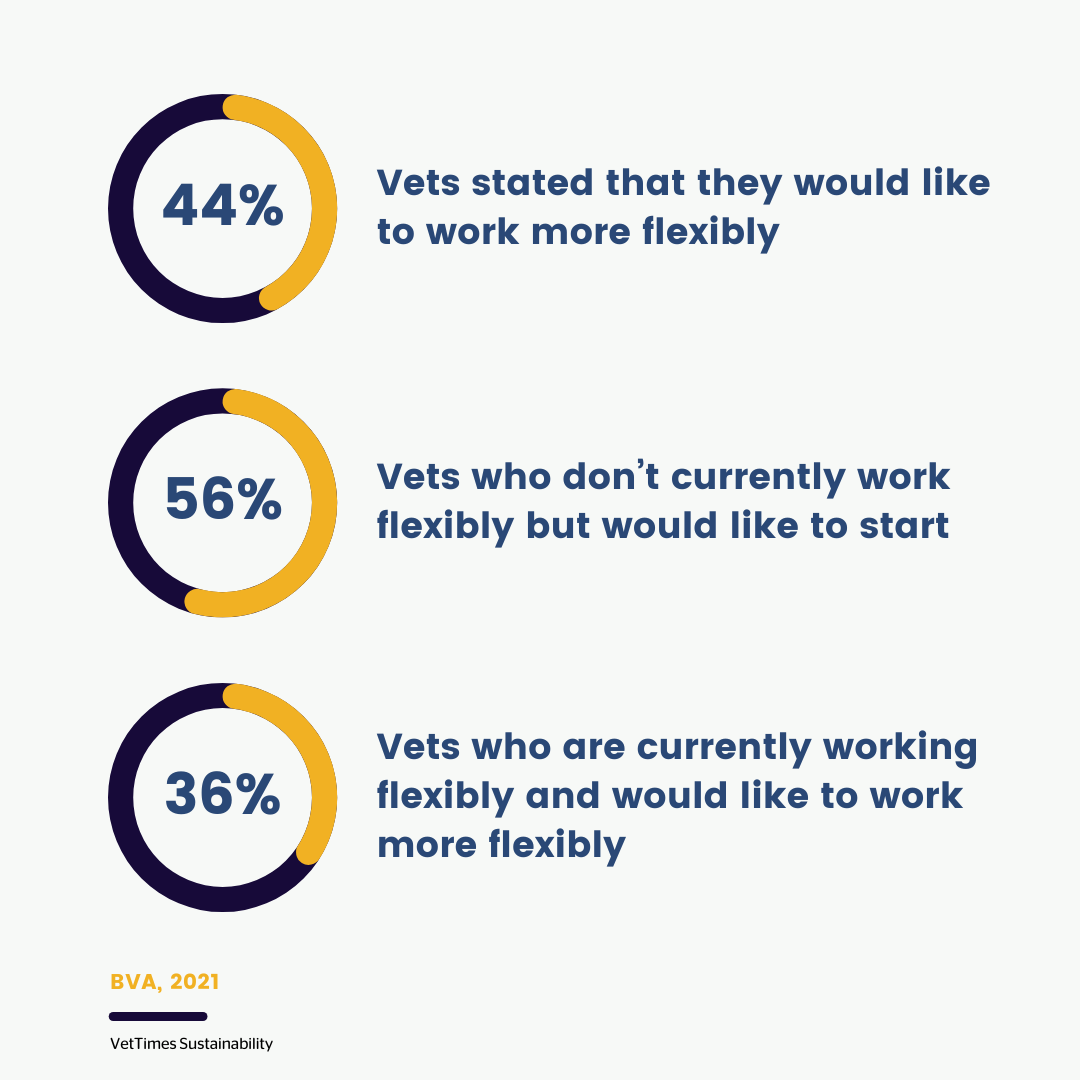

So, what is flexible working? The truth is flexible working means something different to everyone. It encompasses everything outside the traditional, full-time working model.
Flexible working can be arranged both formally (contractual changes requiring a flexible working application), or informally (occasional late starts or early finishes, shift swapping. Arranged with line managers).
A common misconception surrounding flexible working is that it’s reserved for those with families. In fact, the most common reason given for wanting to work flexibly was leisure activities (56%), while 50% cited lifestyle needs and 28% referred to caregiving responsibilities. (BVA, 2021). And while a larger percentage of women choose to work flexibly, in the last 10 years the number of men working less than full time (a type of flexible working) has doubled.
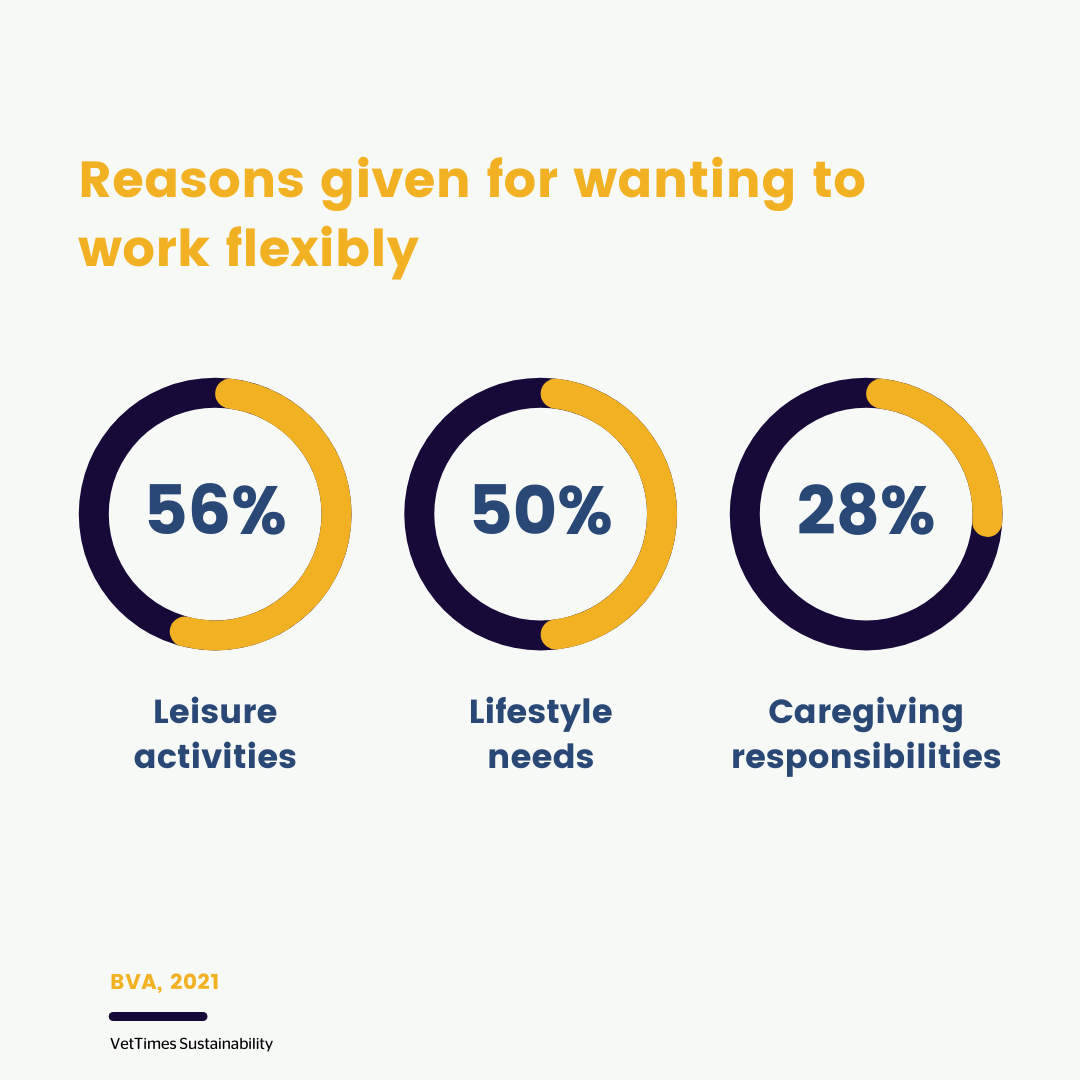

The increased trend towards flexible working combined with the feminisation of the profession, has led to an increased number of vets working flexibly from 44% in 2019 to 50% in 2021 (BVA, 2021).
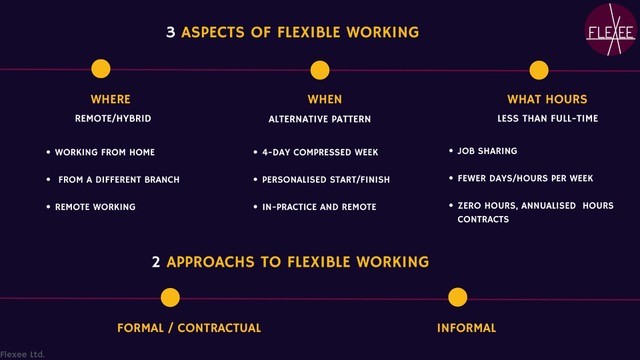

Not feeling rewarded or valued
Psychological working conditions have a huge impact on work-life balance.
- Take the time to understand what each individual in your team values and needs to feel valued.
- Communication is KEY. Communicate at all levels, with every member of staff.
- Provide your staff and colleagues with positive feedback.
- Ensure they’re clear in their role requirements.
- Offer career progression, and development opportunities to staff to give them purpose and ensure these are uniform across the team.
Remuneration
There are two currencies in this world. If someone is giving you their time, you need to give them your money. Pay scales need to be fair, transparent and not influenced by gender.
This is becoming increasingly important with students leaving university with record-breaking debts and exacerbated by the rising cost of living.
Chronic stress
Our mantra at Flexee is “may you have space for time out and capacity for time in.” Allowing your employees to have enough time away from work to fully switch off is crucial for reducing stress and promoting well-being.
Check in regularly. If they are under undue stress at work, take steps to mitigate it and offer strategies to help alleviate the burden. Not your strong point? Direct them towards a mental health first aider within your team.
Making the mosaic work
It takes a forward-thinking business to be bold enough to ditch the “one size fits all” and embrace the mosaic that is flexible working patterns.
Businesses in a recent global trial found it easier to attract and retain talent by implementing a four-day week. (four-day week global trial, 2021).
It is estimated that recruiting a single vet costs the business between £20,000 and £40,000 by the time you top up the visible costs (advertising, time, loss of productivity during notice period) and the invisible costs (training, loss of clients, impact on turnover, team integration).
That’s 40,000 reasons to embrace flexibility.
Doing it well?
Showcase it. Show the world that not only do you think outside the box, but you dance outside of it entirely. Build a strong brand renowned for flexibility and inclusion. And shout about it. Loud.
Build a bank of CVs, full of potential employees for a rainy day. You never know when you just might need them. Use our Flexee Certification as a magnet for new talent.
The future is flexible. At Flexee, we offer a full range of services from team education on our Flexee Hub to bespoke HR consultancy, to help you navigate your flexible working journey. How do you measure up? Take our Flexee Health Score today.
Flexee’s top tips for making flexible working work:
- Flexible working requires a give-and-take attitude; you need flexibility from both sides – the employer and the employee.
- The whole team has to buy into the flexibility to reduce feelings of resentment.
- Fire prevention, is more effective than firefighting. Look at your workforce and anticipate their needs. Proactivity over reactivity.
- Flexible working needs to be managed carefully. Honest and regular communication is key.
- Ensure opportunities for the whole team are uniform. Equity over equality.
- Monitor performance over presence. Shift the focus to outcome-based measures. Set key performance indicators and evaluate staff based on their contributions, results, and the quality of care they provide.
References
- Bjärntoft S, Hallman DM, Mathiassen SE, Larsson J and Jahncke H (2020). Occupational and Individual Determinants of Work-life Balance among Office Workers with Flexible Work Arrangements, International Journal of Environmental Research and Public Health, 17(4). https://doi.org/10.3390/ijerph17041418
- BVA (2021). Voice of the Profession Survey.
- BVA (2021). Flexible working: Embracing Flexibility in the veterinary profession.
- Haar JM, Sune A, Russo M and Ollier-Malaterre AA (2019). Cross-National Study on the Antecedents of Work–Life Balance from the Fit and Balance Perspective, Soc Indic Res 142, 261–282.
- Hagen J, Weller R, Mair TS and Kinnison T (2020). Investigation of factors affecting recruitment and retention in the UK veterinary profession, Vet Record 187(9): 354-354.
- May J, Janksa S and Slobodova A (2020). Flexee Report: Flexible working in the UK veterinary profession.
- RCVS (2018). Survey of the veterinary profession 2019.
- RCVS (2018). RCVS Facts 2018.
- RCVS (2022). Recruitment, retention and return in the veterinary profession. Preliminary report.
- SPVS (2017). Survey Results



Silvia Janska
Silvia Janska is a veterinary surgeon passionate about flexible working and helping to modernise the veterinary profession for a sustainable future.
Silvia is the founder of Flexee, an initiative that is helping to address how veterinary professionals work to improve staff work-life balance, retention, recruitment and return to work.
Flexee is on a mission to resolve the recruitment and retention crisis in the veterinary profession. We do this by helping veterinary practices utilise flexible working arrangements to retain happy staff in clinical practice and attract new talent.
The primary reason for vets leaving clinics is due to a poor ‘work-life balance’ and here Flexee assists with the ‘work’ side of things. Flexee offers a DIY service on the Flexee Hub, a one-stop-shop for flexible working in the veterinary profession that includes CPD, case study videos, and HR, legal, and financial toolkits for vet practices.
Flexee can also help more intimately via bespoke consultancy and workshops.



Silvia Janska
Silvia Janska is a veterinary surgeon passionate about flexible working and helping to modernise the veterinary profession for a sustainable future.
Silvia is the founder of Flexee, an initiative that is helping to address how veterinary professionals work to improve staff work-life balance, retention, recruitment and return to work.
Flexee is on a mission to resolve the recruitment and retention crisis in the veterinary profession. We do this by helping veterinary practices utilise flexible working arrangements to retain happy staff in clinical practice and attract new talent.
The primary reason for vets leaving clinics is due to a poor ‘work-life balance’ and here Flexee assists with the ‘work’ side of things. Flexee offers a DIY service on the Flexee Hub, a one-stop-shop for flexible working in the veterinary profession that includes CPD, case study videos, and HR, legal, and financial toolkits for vet practices.
Flexee can also help more intimately via bespoke consultancy and workshops.



Angela Jones
Angela graduated from the University of Bristol in 2009 completed an internship at Cotts Farm and has been in equine practice since.
Angela has a certificate in advanced veterinary practice in equine medicine and is also a FEI Permitted Veterinarian. Angela joined the Equicall team in January 2023 and now balances equine out of hours with digital content creation for Flexee.
Angela is passionate about flexible working and its implementation at all levels of the veterinary industry. To provide practising vets with the much-needed time out required, to have the capacity to thrive in clinical practice.
Veterinary interests aside, Angela loves running, swimming and yoga. But most of all she enjoys exploring The Cotswolds with her little ones and their dog, George.



Angela Jones
Angela graduated from the University of Bristol in 2009 completed an internship at Cotts Farm and has been in equine practice since.
Angela has a certificate in advanced veterinary practice in equine medicine and is also a FEI Permitted Veterinarian. Angela joined the Equicall team in January 2023 and now balances equine out of hours with digital content creation for Flexee.
Angela is passionate about flexible working and its implementation at all levels of the veterinary industry. To provide practising vets with the much-needed time out required, to have the capacity to thrive in clinical practice.
Veterinary interests aside, Angela loves running, swimming and yoga. But most of all she enjoys exploring The Cotswolds with her little ones and their dog, George.
